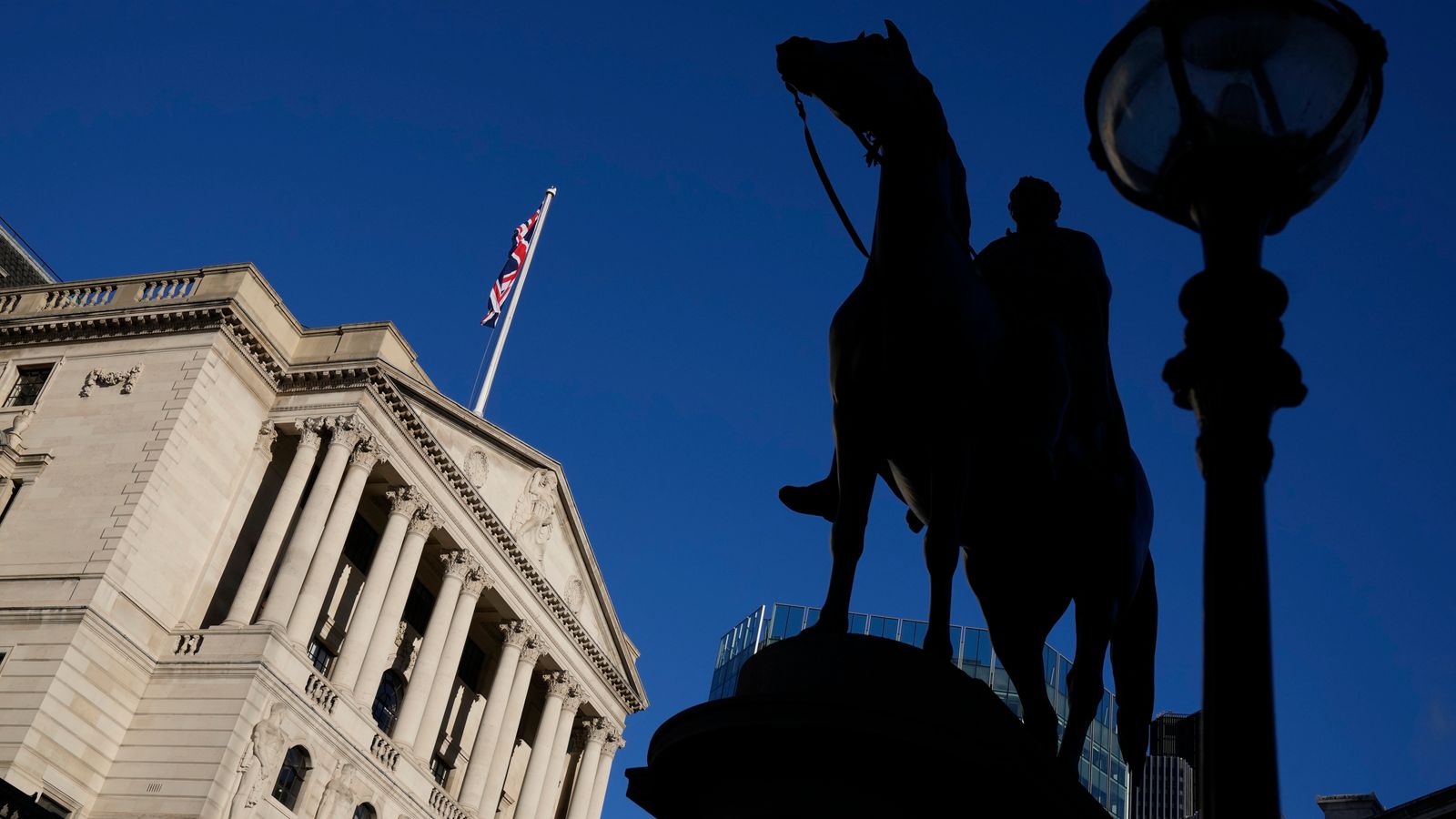The Bank of England has revealed it no longer believes the UK will face a technical recession this year, as it raised the interest rate by a further quarter percentage point.
The unexpected change to its forecast was contained in the minutes alongside its decision to raise borrowing costs for an eleventh successive time to 4.25%.
The monetary policy committee’s decision follows hard on the heels of data showing that far from falling in February, UK inflation rose back into double figures.
It also follows financial turmoil as a series of US banks and then Swiss investment bank Credit Suisse ran into trouble.
Mortgage market set for new blow – Live updates
Some had speculated that in the face of the financial instability the Bank might pause its increases in borrowing costs – the fastest ramp-up since it was granted independence to set monetary policy in 1997.
However, the decision was relatively clear-cut, with seven of the nine members voting for the 25 basis point increase.
The minutes revealed that the Bank is now considerably more optimistic about the economy, expecting national income to grow slightly in the second quarter of the year rather than shrinking by 0.4 per cent – as it anticipated a month ago.
The change would mean that the UK would no longer face a technical recession, defined as two successive quarters of economic contraction.
The upgrade is partly down to lower energy costs and partly due to the giveaways in the budget earlier this month.
Policymakers also gave a vote of confidence to the UK banking system amid the recent turmoil for shares.
The minutes said that the Bank’s Financial Policy Committee “judged that the UK banking system maintained robust capital and strong liquidity positions, and was well placed to continue supporting the economy in a wide range of economic scenarios, including in a period of higher interest rates. The FPC’s assessment was that the UK banking system remained resilient.”
Read more from business:
More than a million universal credit payments cut over the past year because of historical overpaid tax credits
Manchester United owners extend deadline for bids
Explaining why seven of the committee had voted for higher rates, it said: “headline CPI inflation had surprised significantly on the upside and the near-term path of GDP was likely to be somewhat stronger than expected previously.”
Two members – Swati Dhingra and Silvana Tenreyro – considered that “the current setting of Bank Rate would be likely to reduce inflation to well below target in the medium term.”
The Bank is still expected by markets to raise rates another time later this year, but the minutes left its key guidance unchanged: “If there were to be evidence of more persistent pressures, then further tightening in monetary policy would be required.”
